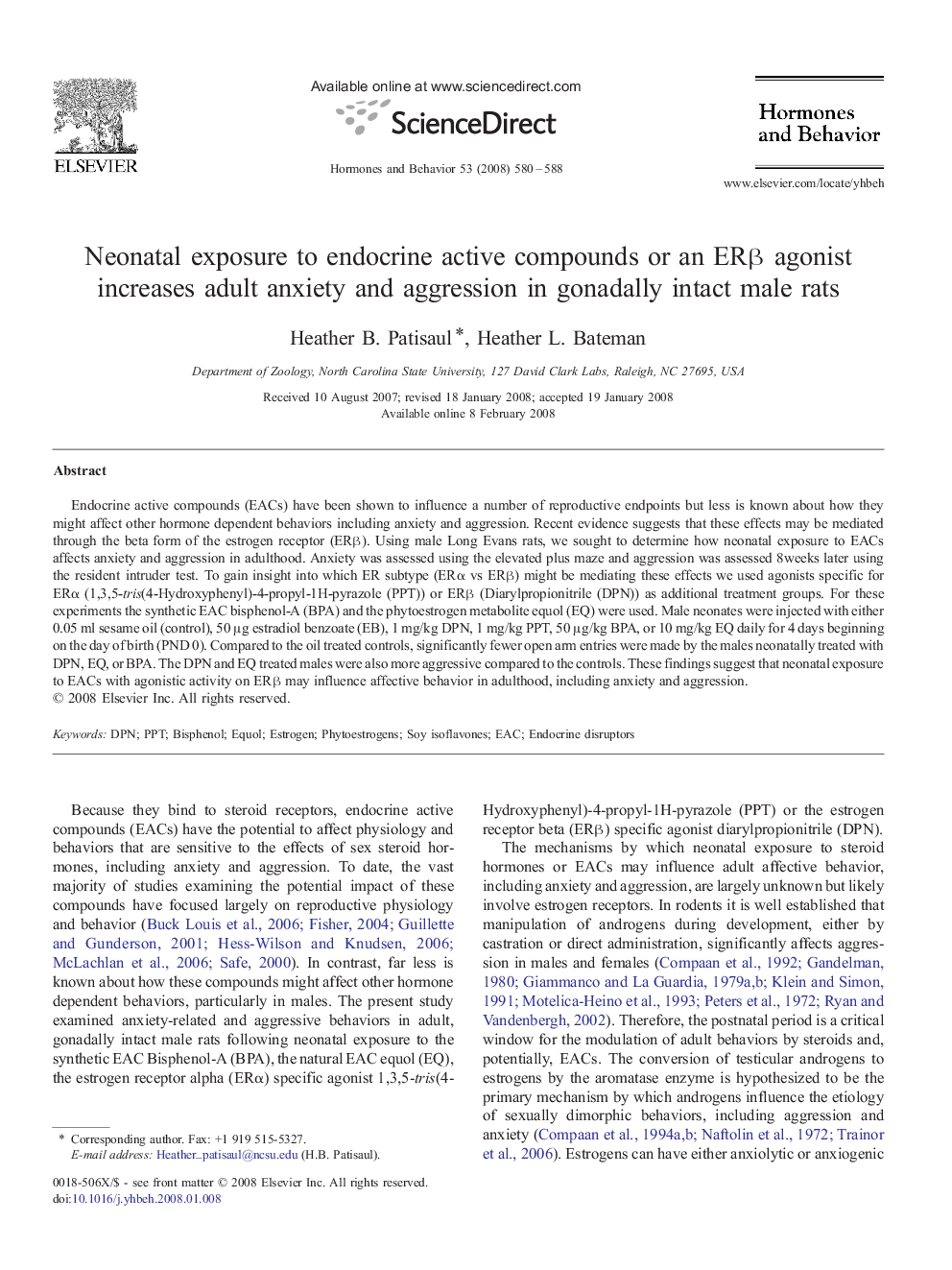| Article ID | Journal | Published Year | Pages | File Type |
|---|---|---|---|---|
| 323279 | Hormones and Behavior | 2008 | 9 Pages |
Endocrine active compounds (EACs) have been shown to influence a number of reproductive endpoints but less is known about how they might affect other hormone dependent behaviors including anxiety and aggression. Recent evidence suggests that these effects may be mediated through the beta form of the estrogen receptor (ERβ). Using male Long Evans rats, we sought to determine how neonatal exposure to EACs affects anxiety and aggression in adulthood. Anxiety was assessed using the elevated plus maze and aggression was assessed 8weeks later using the resident intruder test. To gain insight into which ER subtype (ERα vs ERβ) might be mediating these effects we used agonists specific for ERα (1,3,5-tris(4-Hydroxyphenyl)-4-propyl-1H-pyrazole (PPT)) or ERβ (Diarylpropionitrile (DPN)) as additional treatment groups. For these experiments the synthetic EAC bisphenol-A (BPA) and the phytoestrogen metabolite equol (EQ) were used. Male neonates were injected with either 0.05 ml sesame oil (control), 50 μg estradiol benzoate (EB), 1 mg/kg DPN, 1 mg/kg PPT, 50 μg/kg BPA, or 10 mg/kg EQ daily for 4 days beginning on the day of birth (PND 0). Compared to the oil treated controls, significantly fewer open arm entries were made by the males neonatally treated with DPN, EQ, or BPA. The DPN and EQ treated males were also more aggressive compared to the controls. These findings suggest that neonatal exposure to EACs with agonistic activity on ERβ may influence affective behavior in adulthood, including anxiety and aggression.
